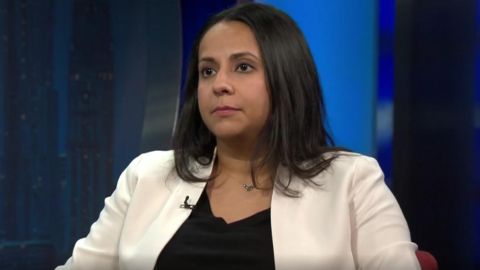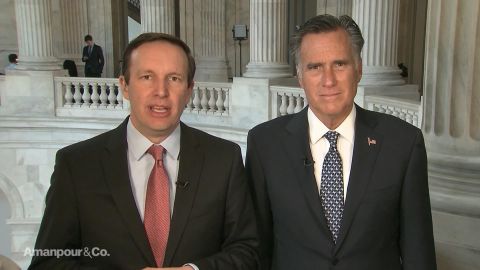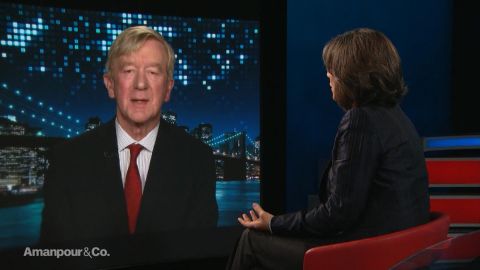Read Transcript EXPAND
CHRISTIANE AMANPOUR: How do you assess President Trump’s assertion of executive privilege over the redacted parts of the Mueller report? Senator Romney first.
SENATOR MITT ROMNEY: Well, it’s a legal issue at this stage. It’s a process which may ultimately be resolved in the courts and we’ll see what that resolution leads to. I had hoped that this process could be entirely open and collaborative, it is becoming less so. I had also hoped to hear from Mr. Mueller. I still hope that we’ll get a chance to hear his perspectives on the process.
At the same time, I think that the hearings that were held with Attorney General Barr were so hysterical in some respects that there seems to be a retrenching on both sides. And frankly, when everything is called an outrage, then nothing is an outrage. So, I think the process has gotten off the rails, to a certain degree. But clearly, we have the Mueller report. I spent two full days reading it and people can draw their own conclusions by doing so.
SENATOR CHRIS MURPHY: I think —
AMANPOUR: Senator Romney, just to say — sorry, Senator Murphy, just to say, you, Senator Romney, said, “I’m sickened that the extent and pervasiveness of the dishonesty and misdirection by individuals in the highest office of the land, including the president.” That is from your reading of the Mueller report.
ROMNEY: Yes, I wasn’t speaking about a criminal or legal implications in that circumstance. I was just speaking about the degree of dishonesty and misdirection that I was seeing as I read through the report. And particularly, the second volume of the report suggested misdirection that was being laid towards the press, things that were happening inside the White House that I found to be disappointing in the extreme. And I think other people, if they take the time to read the entire report, will come away with that same very, very deep disappointment.
AMANPOUR: And that’s on the obstruction issue in volume two [13:05:00]. Senator Murphy, you were about to say. Do you think the president asserting executive privilege over the redacted parts is an appropriate and correct use of executive privilege which does, in fact, have certain limitations?
MURPHY: Well, of course, it’s hard to know because we haven’t read the redacted portions of the report, but I do agree with Senator Romney that this was headed to the courts, frankly, before the president asserted executive privilege because the attorney general had not complied with a subpoena for the full report.
One way or the other, it has seemed, unfortunately, inevitable that the courts were going to have to litigate this question as to whether Congress gets to see the entirety of the report or only the portions of the report that the administration believes that we should see. I believe in the end, that the courts are going to come to the conclusion that this is, of course, in the interest of the United States Congress to be able to see the entirety of it. But I agree that it would be much better for this to be worked out between the Congress and the administration rather than have to go through the expense and the time of a court process.
About This Episode EXPAND
Christiane Amanpour speaks with Mitt Romney & Chris Murphy about what’s going on in Washington; and Bill Weld about his bid for the presidency. Hari Sreenivasan speaks with Neha Narula about the future of digital currency.
LEARN MORE


